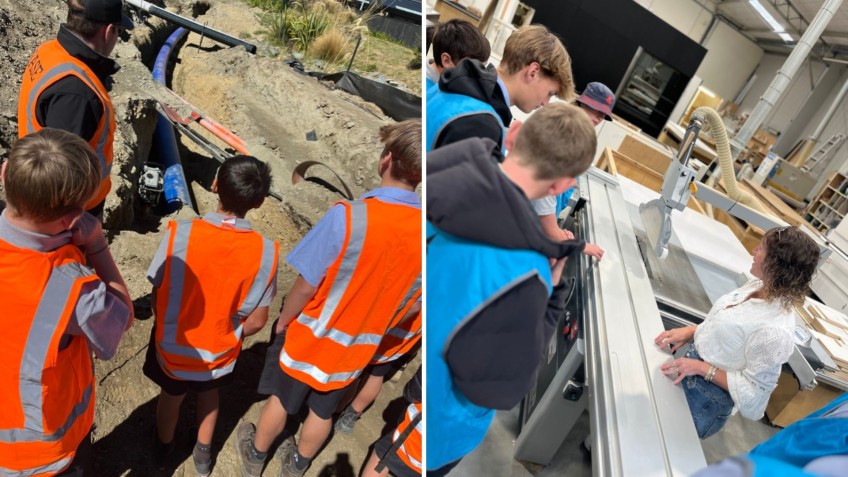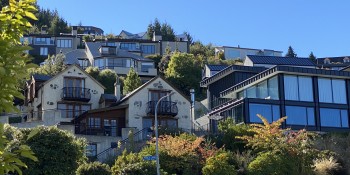Cromwell College pupils prepare to build a (tiny) house

Students in Cromwell will soon have the opportunity to take classroom learning outside and build a tiny home in the process.
Over the holidays, Cromwell College will be taking delivery of the components for a small log cabin, which will then be built on site by students.
Once complete, the finished building will be auctioned off, with the proceeds reinvested in another building project to start the cycle again with a fresh bunch of learners.
Teacher and deputy principal Sarah Hill, who is spearheading the innovative programme, says the school wants to make sure its curriculum delivery connects young people to the world they live in.
And, for many, Cromwell is a tradie town - or hospo, horticulture or viticulture, she says.
While there are no plans for wine at high school yet, alongside the tiny home initiative the school is also acquiring a food cart, providing an opportunity for teens to learn, among other things, barista skills and small business marketing and finance.
Ms Hill is realistic that not all young learners will stick school out to the end, and it is obvious she feels a responsibility until then to ensure their tool belts are loaded to help them succeed in the workforce - and in life.
"It might be something like having hands-on experience of measuring in a building context, or it might be measuring the fruit sugars in grapes," she says.
"That stuff needs to be happening by the time kids are turning 15, where they might be having an opportunity to leave school."
The school is increasingly trying to accommodate those who find they don't learn as easily within the confines of the four walls of a classroom.
"It doesn't have to mean days away, or half days away, or anything like that. It can be as little as, 'we're sitting in maths class and we don't understand about the surface area of a rectangle, so we whip over to the tiny home and we measure the cutout for a window and then we whip back into the classroom'.
"It's real, tangible stuff."
In recent weeks a group of students has been out on a site visit to a local joinery firm. Back at school they're about to stain some tables to have a go at some of the techniques they observed during the field trip.
"We're just revving up the engagement (with the community) and, I guess, giving everybody a real connection to their learning; that is the key," Ms Hill says.
Once it is up and running, the food cart will provide a low-risk space for students to practice newly-acquired hospitality skills.

Deciphering site plans during a field trip to a Queenstown civil construction site (Image: Supplied).
The plan is for the cart to open for set periods during the week, allowing members of the public and parents and caregivers to come and purchase a hot drink or snack from the young people.
The programmes are not aimed solely at any one cohort of kids.
"We've got the likes of our Year 12 financial literacy class using the tiny home as a context for one of their assessments for planning and budgeting; we've got our DCV class (design and visual communications - what was once called graphics) that are designing the look of the outside of the food cart; and we'll have our computing classes being able to help us with website design and menu graphic design," Ms Hill says.
Jenna Faulkner, who runs the Central Otago Youth Employability Programme at local high schools including Cromwell College, has long been challenging a cookie-cutter approach to education with her work.
She says these latest programmes at the school are being funded by the Withiel Fund Charitable Trust, and she welcomes hearing from others in the community who may have expertise to offer the school as they deliver them.
Main images (Supplied): Learning happens outside the classroom as Cromwell College prioritises student visits to local workplaces.


























